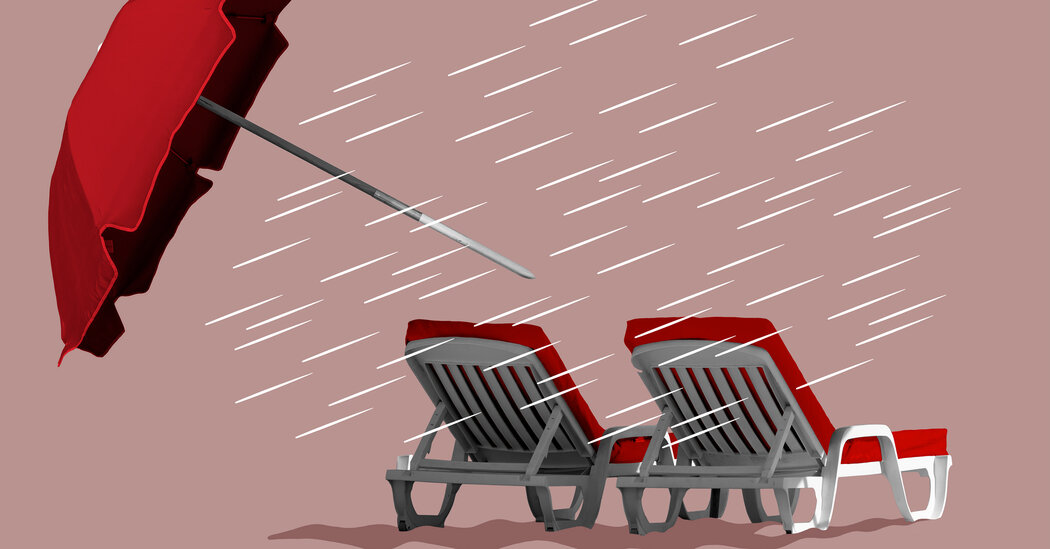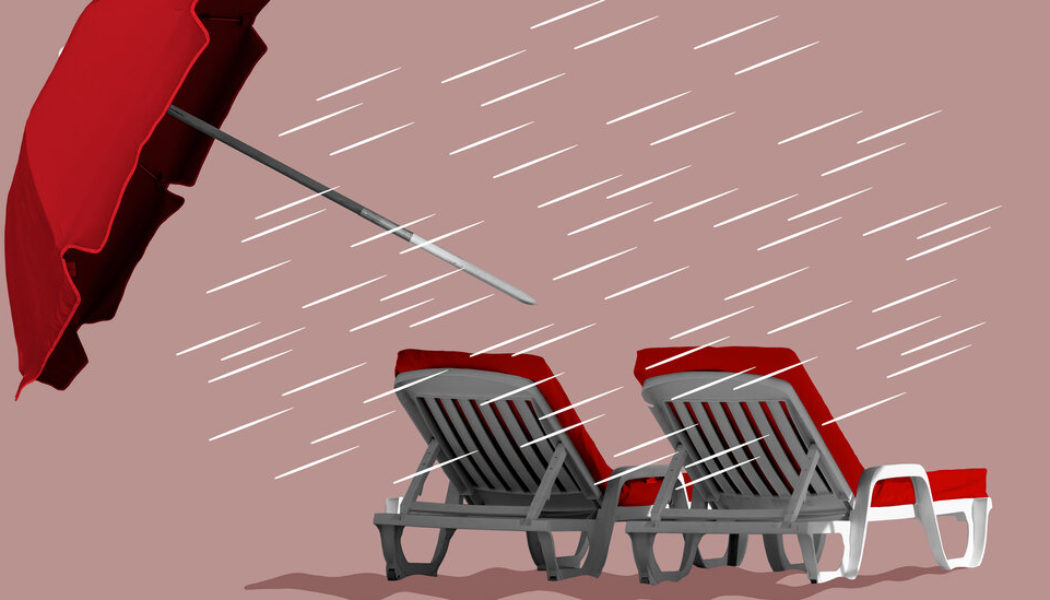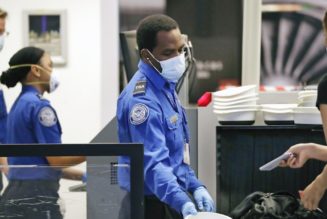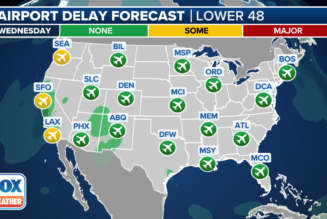
Destruction from Hurricane Ian led a tour operator to cancel a 10-day excursion to Cuba, leaving a woman with a useless $1,500 plane ticket. That’s what travel insurance is for, right? Our columnist dives into the red tape.
Dear Tripped Up,
I had booked a 10-day, $4,424 tour to Cuba for last November, but Hurricane Ian hit the island in late September, knocking out the power grid and causing widespread destruction. The tour organizer canceled the trip, citing health and safety issues, and refunded our money. I had bought my airfare ($1,504) separately, so I assumed my GoReady Pandemic Plus insurance policy would cover it. But when I called the company, an agent told me that because the Havana airport was open, and the hotel I planned to stay in was habitable, it was not worth filing a claim that would surely be denied. If travel insurance doesn’t cover this, what does it cover? Khatiba, Sebastopol, Calif.
Dear Khatiba,
You are forgiven for thinking that the “trip cancellation” portion of your policy would cover, say, trip cancellation.
My inbox is flooded with messages from travelers whose similarly reasonable-sounding claims were denied either because of a policy’s fine print or because the documentation process became so mind-bendingly bureaucratic that they simply gave up.
After looking into your case and others, here’s a warning I think should accompany every travel insurance policy:
“Most travel insurance covers you against specific hazards listed in the policy’s fine print, excluding countless scenarios you’d never think of and that could ruin your trip through no fault of your own. If you are covered, you might have to persuade doctors, hospitals, airlines, cruise lines and others to provide documentation well beyond what you consider necessary or rational — all in the aftermath of a vacation gone terribly wrong.”
To be fair, most vacations go off without a hitch, most hitches are covered and most claims are paid out with minimal hassle. But there are plenty of exceptions, and their stories reveal that people often expect too much from their policies.
“Many travelers don’t read up on the insurance,” said Jason Schreier, the chief executive of GoReady, an online travel insurance retailer. “They believe that if anything happens on their trip that creates an unexpected expense, and it’s not their fault, that the travel insurance company will foot the bill.”
In your case, a conscientious tour operator canceled the trip and reimbursed everyone on it. Your plane tickets were thus rendered all but useless: Even if you had wanted to fly to Cuba for a solo trip in the wake of a hurricane, it is not clear you could have. The U.S. government still prohibits most tourism to Cuba that does not include a “full-time schedule” of “exchange activities.” It seems logical that you should be reimbursed.
But the fine print of the GoReady Pandemic Plus policy says otherwise. You were covered for natural disasters only if certain criteria were met: Airports had to be closed “for 48 consecutive hours,” for example, or your hotel rendered “uninhabitable.”
Even if either situation had been the case, you may not have been covered, at least not fully, since the airlines gave you a $425 credit, potentially invalidating that much of the claim. Insurers will not pay out claims if a travel provider offers a credit, though they may make an exception if there is little chance the traveler would ever use it, such as with a regional airline.
Though GoReady stands by the advice not to file, it has now offered you a choice between a partial refund of $220 or a credit for the full value of your insurance policy ($559).
Mr. Schreier noted that it isn’t in his company’s interest when claims are denied. GoReady, like many of its competitors, primarily sell the plans and provides customer service, while third parties evaluate claims, and underwriters — think Nationwide or Assurant — cover the payouts. “We’re motivated to have our clients’ claims paid,” Mr. Schreier said, “as we know that’s the most likely factor to influence repeat business.”
Still, your case is frustrating. We all understand why policies might exclude injuries suffered while, say, mountain climbing. But it is exasperating that just because a situation is not explicitly spelled out, it is excluded. That is one reason some people purchase more expensive Cancel for Any Reason, or CFAR plans, but even then, read the fine print.
For example, CFAR only kicks in before your vacation starts. It wouldn’t have helped Mark from Los Angeles, who insured his Sierra Club Antarctic cruise through a company called World Nomads. About halfway into the 18-day voyage — and before reaching Antarctica — a fellow passenger fell and died. Following protocol, the ship turned around and sailed to the Falkland Islands, and eventually to Ushuaia, Argentina, for the group’s return flight.
In a letter meant for insurance providers, the Sierra Club estimated the value lost because of the trip interruption at $7,308 per person. But TripMate, which administers claims for World Nomads, rejected Mark’s claim and that of his travel companion.
The problem: Their trip was not technically “interrupted,” since they spent all 18 nights aboard. Several times in my conversations with insurance executives I heard the phrase “You’re not covered for loss of enjoyment,” but I imagined this applying to a week of rain at a Caribbean resort, not an Antarctic cruise that never makes it to Antarctica.
I also heard from a reader named Alan, of Vaughan, Ontario, about a nightmarish return from Vancouver to Toronto during last Christmas season’s storms. After three WestJet flights were canceled and another delayed, all because of the weather, the next flight they were booked on was canceled because of a crew shortage, and he and his wife were stuck in Calgary overnight. Alan had paid for his trip with an HSBC credit card that offers travel insurance through Assurant.
The next day, with no word from WestJet on when they could fly, they called Assurant, which told them it would cover an Air Canada flight home. Alan filed claims for hotel expenses from WestJet and reimbursement for the flight from Assurant. WestJet rejected the hotel request, and the letter it provided Alan in order to file a claim with Assurant mischaracterized at least two of the cancellations and focused on the crew shortage of the final flight — a situation not covered by insurance.
A spokeswoman for WestJet, Madison Kruger, said the airline had erroneously rejected the hotel claim and would pay. Linda Recupero, a spokeswoman for Assurant, which administers the HSBC policy, said that she could not comment on the case, but that the company has been in touch with Alan to help with future steps.
In another case of snarled communication, Jacki of Englewood, Colo., tested positive for Covid and was denied boarding on a Greek Islands cruise in May 2022, a situation clearly covered under the trip cancellation policy provided by her Chase Sapphire Reserve credit card. But when Chase’s third-party administrator tried to verify that the cruise line had not reimbursed her for the $11,000 cruise, they were told she’d gotten a $250 refund somewhere along the way. Jacki was not informed of this mix-up until nearly a year later. She wrote to me with the subject line “Insurance stand-off.”
Paul Lussier, a Chase spokesman, blamed the snafu on a breakdown in communication, and said the company that administers its insurance program had thus waited seven months for documentation from Jacki. Why a $250 misunderstanding would hold up a the process — especially since the policy covered $10,000 — is unclear. But all this has now been settled and Jacki will receive payment.
Travel insurance is often necessary (for those whose medical insurance does not cover them abroad, for example) or prudent (say, if a traveler worries about canceling an expensive trip because of the failing health of a family member) and often just a good idea. But temper expectations, read the fine print and call the company before the trip with questions. If something happens along the way, document the heck out of it. And when you get home, warm up that scanner and prepare to create and upload more PDFs than you thought possible.
If you need advice about a best-laid travel plan that went awry, send an email to TrippedUp@nytimes.com.
Follow New York Times Travel on Instagram, Twitter and Facebook. And sign up for our weekly Travel Dispatch newsletter to receive expert tips on traveling smarter and inspiration for your next vacation.









